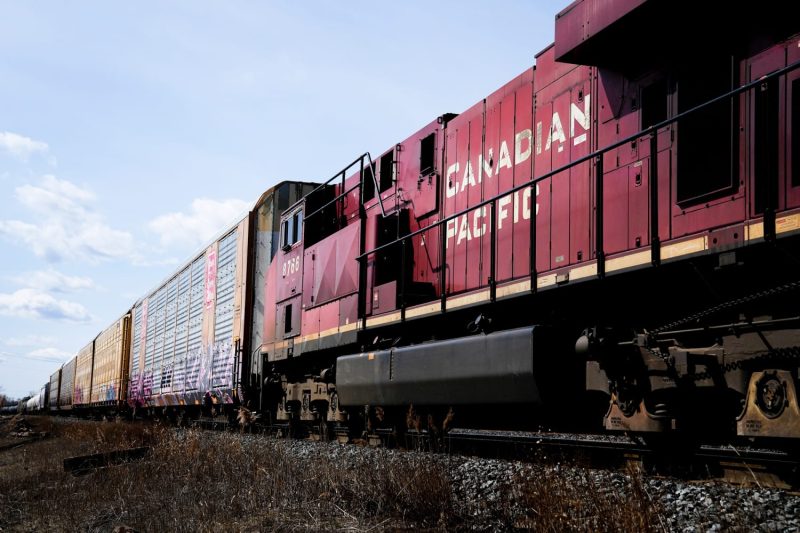The possible work stoppage at Canada’s two largest railroads, Canadian National Railway Co. (CN) and Canadian Pacific Railway Ltd. (CP), has the potential to severely disrupt the supply chain in the United States. Both CN and CP are major players in transporting goods between the U.S. and Canada, as well as within Canada itself. Any halt in their operations could have far-reaching consequences for various industries that rely on rail transportation.
The impact of a work stoppage at CN and CP would first be felt by the automotive sector. Both railroads play a crucial role in transporting auto parts and vehicles across the border between the two countries. A disruption in these operations could result in production delays for automakers on both sides of the border, leading to potential shortages in the automotive market.
The agricultural industry would also be heavily affected by a work stoppage at CN and CP. These railroads are vital for transporting grain, oilseeds, and other agricultural products from the Canadian prairies to ports for export. Any interruption in this transportation network could result in significant losses for farmers and a decrease in the availability of Canadian agricultural products in the global market.
Furthermore, the energy sector would face challenges if CN and CP were to halt their operations. These railroads are crucial for transporting crude oil, chemicals, and other energy-related products to various destinations. A disruption in their services could lead to supply shortages and increased costs for businesses operating in the energy sector.
The retail industry would also feel the impact of a work stoppage at CN and CP. Many consumer goods rely on rail transportation for delivery across the U.S. and Canada. A disruption in these services could result in delays in restocking shelves, leading to potential shortages of products and dissatisfied customers.
Overall, a possible work stoppage at Canada’s two largest railroads, CN and CP, could have severe consequences for the U.S. supply chain. Various industries, including automotive, agriculture, energy, and retail, would face challenges due to disruptions in the transportation of goods. It is crucial for all stakeholders to work towards a resolution to avoid any potential disruptions and minimize the impact on the supply chain.
